NDTV Exclusive: What Spending 24 Hours Inside A Gaza Refugee Tent Looks Like
They have been displaced 18 times. Eighteen times since the start of what Esraa calls "the genocide." Her tone is not bitter, just exhausted, heavy with the knowledge that this, too, may not be their final stop.
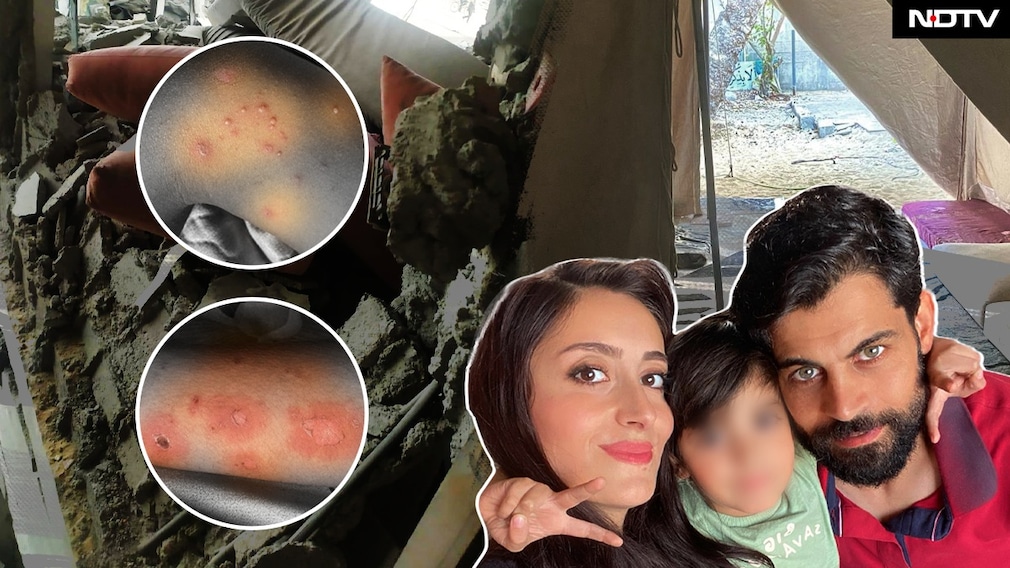
At dawn, a faint streak of orange breaks through the ashen sky over Deir al-Balah, 14 km south of Gaza City. The air smells faintly of burned rubber and damp earth. The sea is close, but its breeze carries no relief. Inside a small tent stitched together from frayed sheets and plastic tarps, Esraa Rabie Mohammed Humeid, 35, sits cross-legged, her hands wrapped around a cup of tea. Her five-year-old son, Orwah, sleeps lightly, his small body curled against a rolled-up blanket. Outside, her husband, Mahmoud Waleed Mohammed Al-Sheikh, also 35, adjusts a pipe that runs from a neighbouring rooftop tank -- their only source of water, available every two days.
They have been displaced 18 times.
Eighteen times since the start of what Esraa calls "the genocide." Her tone is not bitter, just exhausted, heavy with the knowledge that this, too, may not be their final stop, despite the ceasefire agreement between Israel and the Palestinian group Hamas.
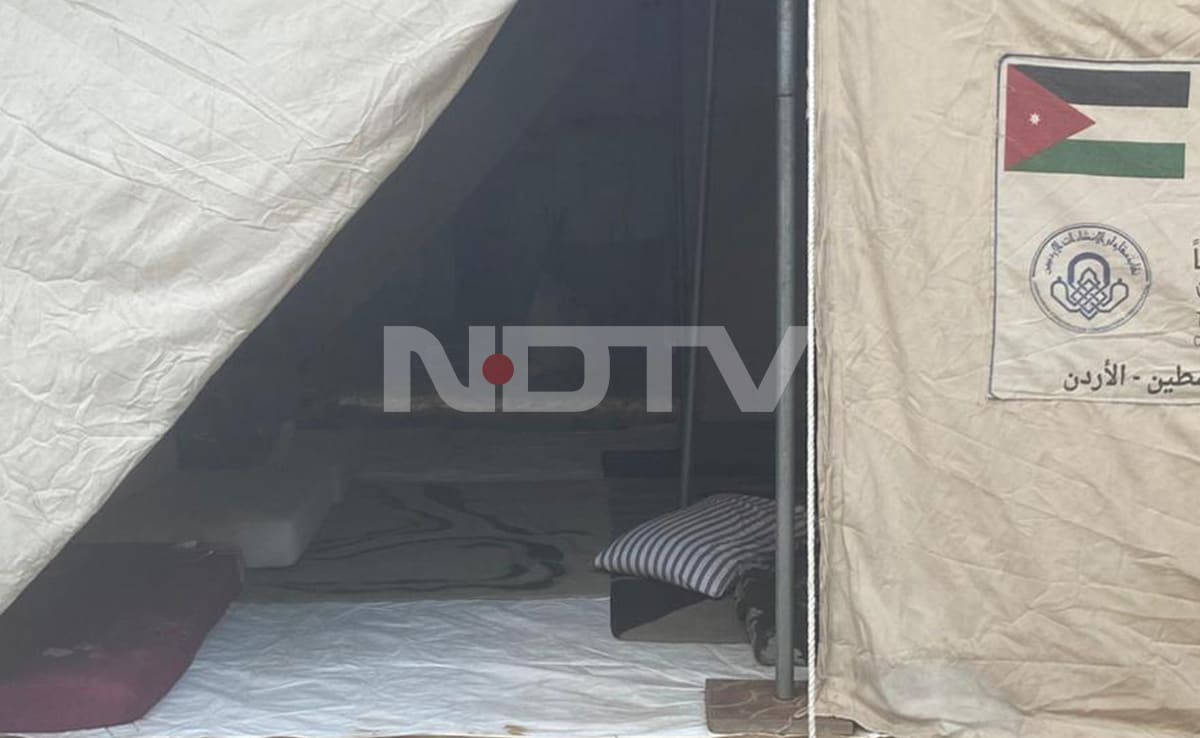
"We have been displaced eighteen times since the beginning," Esraa told NDTV. "Sometimes we were together, and at other times we were separated in different areas. My parents went one way, we went another. There is no such thing as a safe place here."
This is her second time in a tent. The first one flooded last winter.
Now, she lives with her husband and child on a small piece of rented land behind a house in Deir al-Balah. They pay $300 or nearly 900 Israeli Shekels -- an impossible sum in a city where there is no work, no banks, no cash. Everything arrives through digital transfers with crushing commissions.
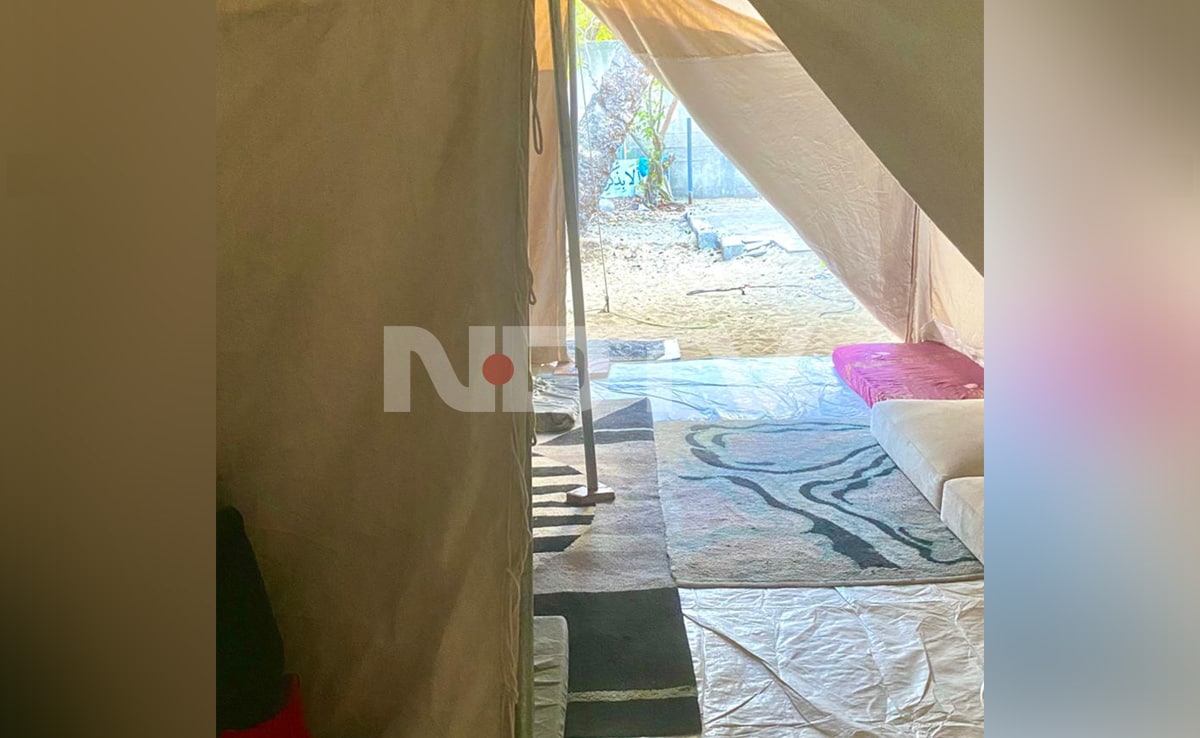
"Currently, there are no banks," she explains. "The person who manages my donation link transfers the money to someone in Canada, who then sends it to Gaza. By the time it reaches us, after all the commissions, we lose 14 per cent -- sometimes much more. When we withdraw cash, the rate can reach even 55 per cent."
The Ruins Of Home
Before the war, Esraa's world was full of colour. Her husband worked at a large store that sold art supplies and toys. She herself painted intricate designs on glass cups and ceramic plates, sold her crafts online, and worked in digital marketing. Their home was in the Jabalia Camp in northern Gaza, a neighbourhood that no longer exists.
"My house stood in the northern Gaza Strip in Jabalia camp," she told NDTV. "It was destroyed by bombardment. Nothing remains. We couldn't even go back to see what was left. Sometimes I dream about it -- I walk through the rooms, but there are no walls."
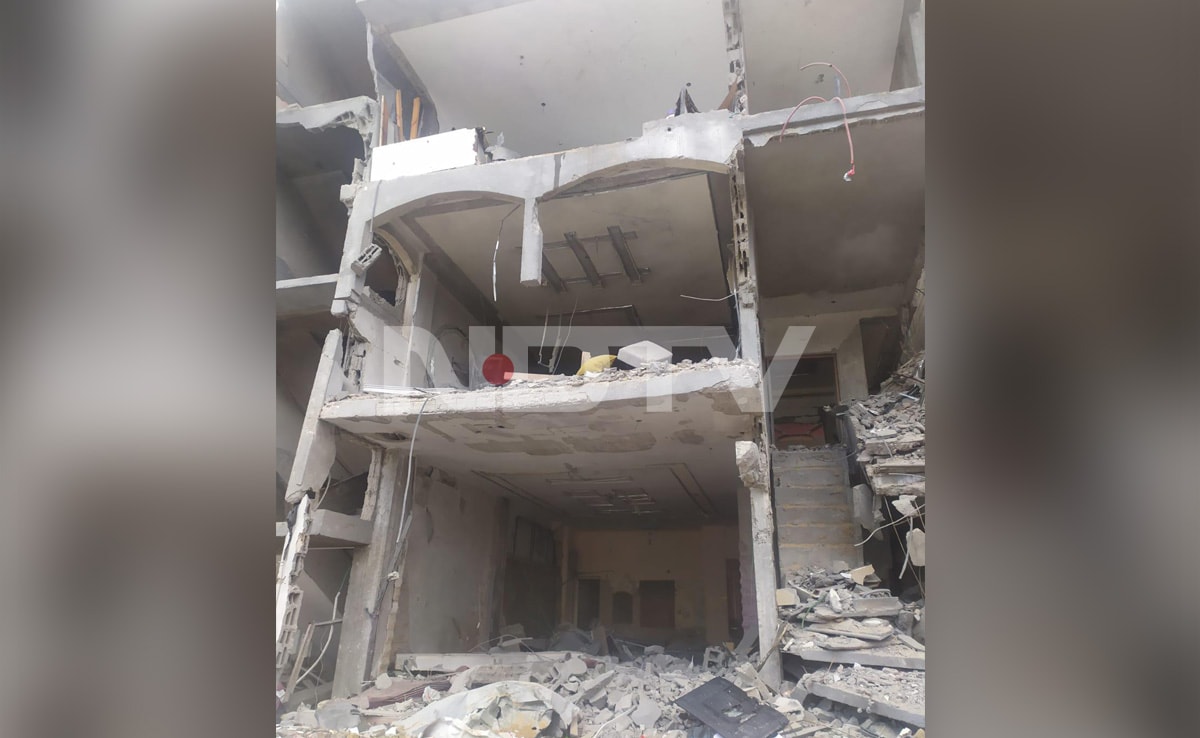
The ruins of Esraa's home in Jabalia Camp in northern Gaza.
Today, 78 per cent of Gaza's buildings are damaged or destroyed. More than 61 million tonnes of debris - roughly the weight of 25 Eiffel Towers - cover the landscape. Beneath much of it lies asbestos and industrial waste, making cleanup not just daunting for whatever is left of the local authorities, but also deadly.
Inside The Tent
Inside the tent, life is organised around scarcity. The air is heavy with humidity. The floor is covered partly in polythene and cloth, and largely left exposed to sand. A thin curtain separates their sleeping corner from the small space where Esraa cooks.
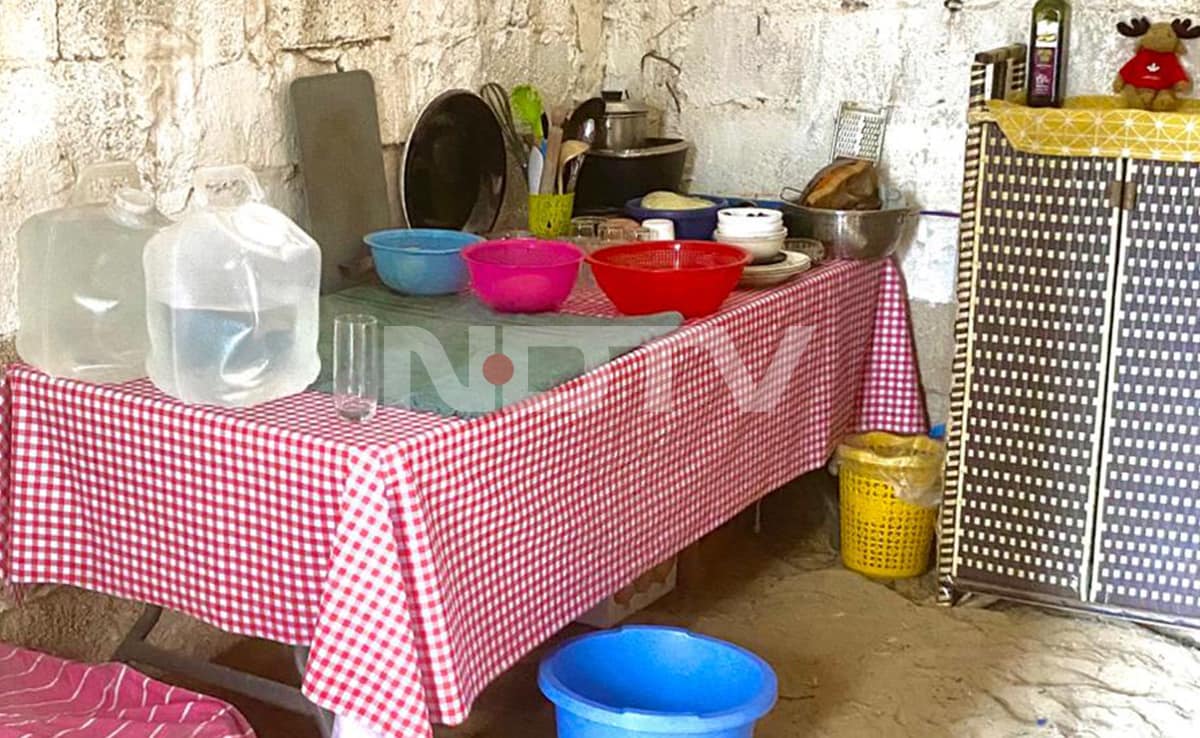
A makeshift dining area inside Esraa's tent.
"We depend on donations," she explains. "There is no income. My husband keeps looking for a place to stay until the Rafah crossing opens and we can leave Gaza. But everything depends on connections, without them, we can't even think of leaving."
The Rafah crossing, Gaza's last gateway to the world, has been closed for months. When it reopens, perhaps soon, it could bring hope to families like Esraa's.
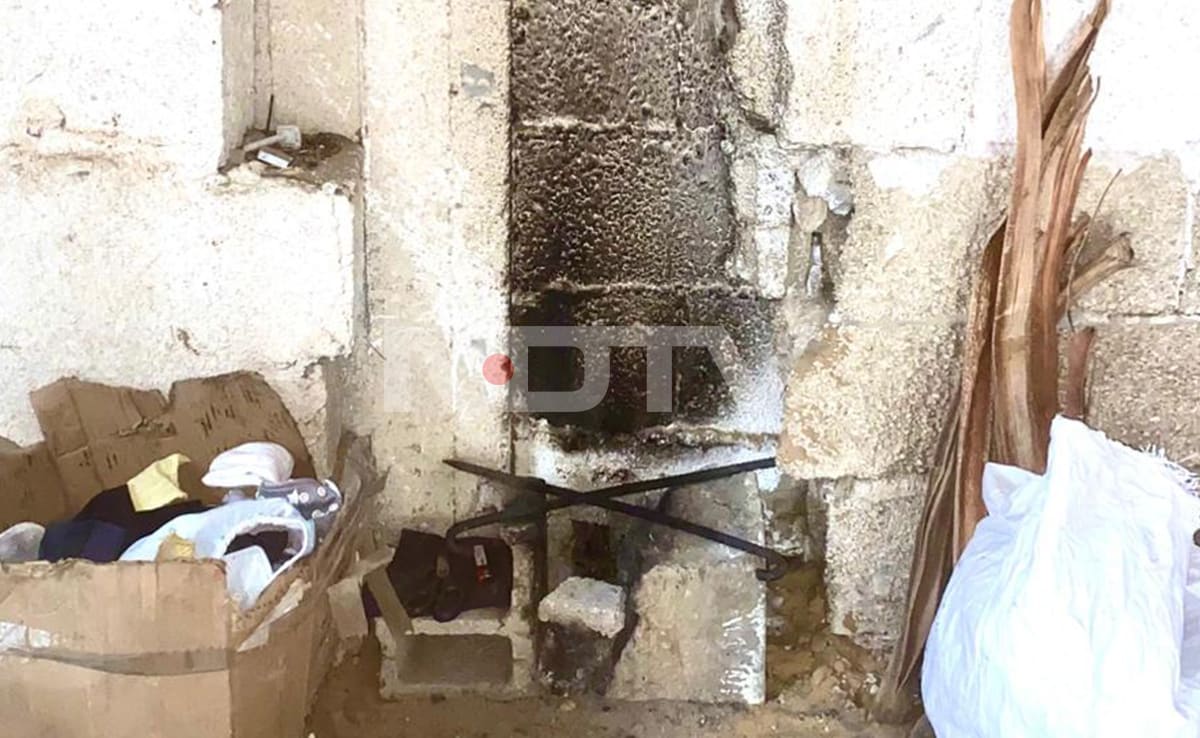
Esraa's "kitchen" where the family cooks food.
Her tent, like thousands of others, is supplied with water through makeshift pipes that stretch across courtyards and collapsed roofs.
"This pipe extends from the tanks above the house next to us," she pointed out. "Water is available every two days. When it comes, we fill two small jugs. That's all we have."
Her husband sometimes pays for drinking water from trucks that drive through the ruins.
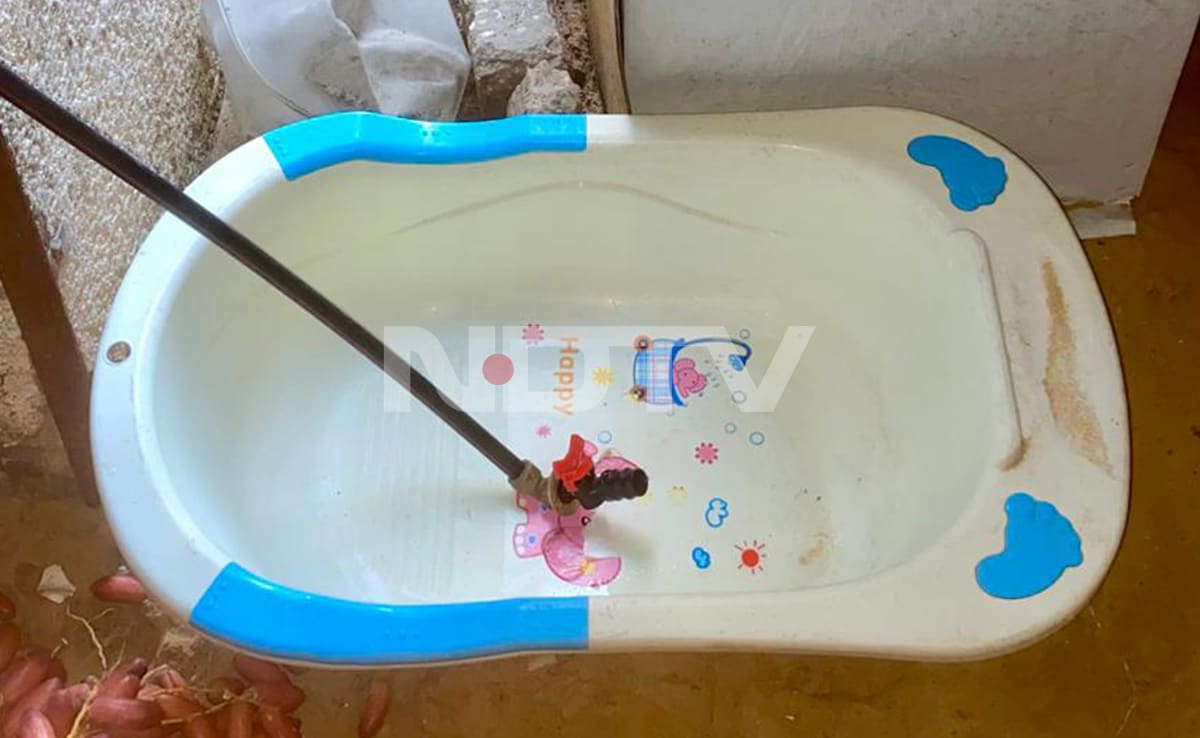
Water is supplied once every two days through makeshift pipes that stretch across roofs.
"When the water truck comes near, my husband goes to get water, often paying for it. Sometimes he has to walk long distances to find a filling source. It's exhausting," she said.
The Water Crisis
It was contaminated water, or perhaps the lack of clean water, that first made Esraa realise how fragile survival had become. Her son, Orwah, developed a rash -- small bumps that spread across his arms, legs, and back.
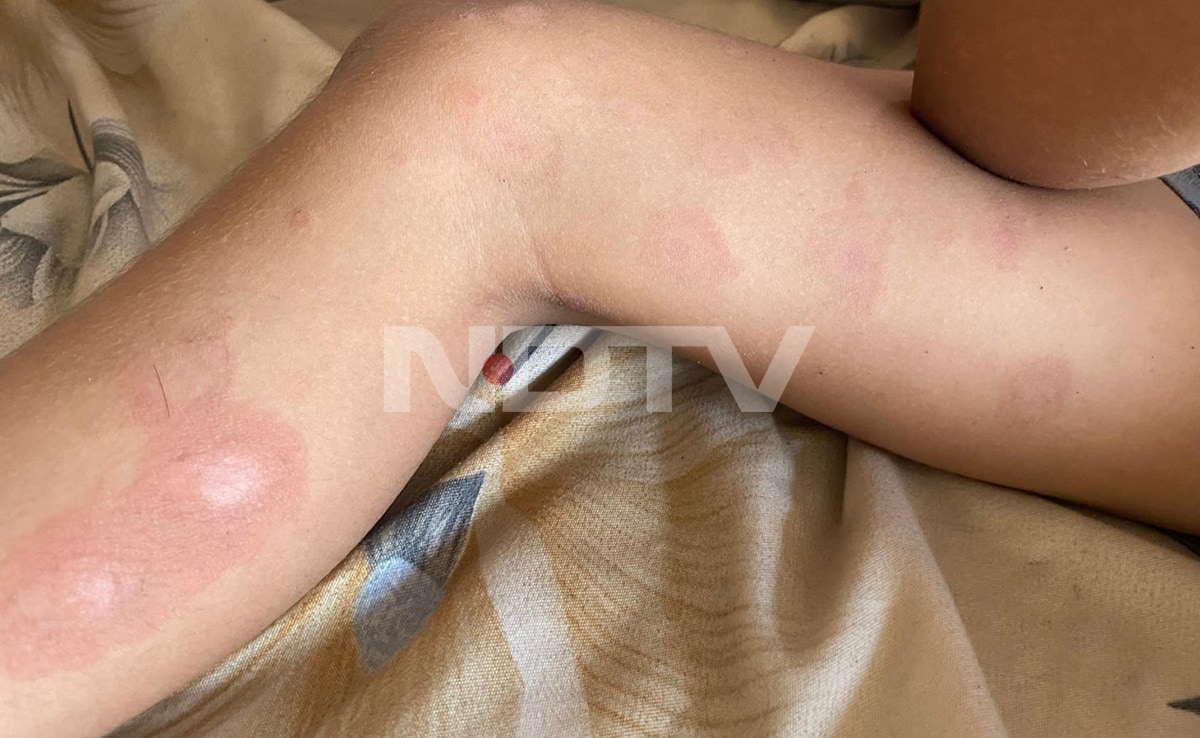
Esraa's son developed rashes across his body due to contaminated water in Gaza.
"He suffered from it last year when we were displaced in a school," she said. "He suffered from it again this year. I documented his experience online when we were in a house. Thank God, it has disappeared now. At first, when the small bumps appeared because of the heat, I went to a doctor. He prescribed allergy syrup and a disinfectant lotion. But after a week, the bumps changed shape and spread. We went back, and he then prescribed two antibiotics and a moisturising ointment. Finding the medicines was almost impossible. Even the antibiotic syrup irritated his skin because it wasn't the right kind."

Photo Credit: Esraa's son developed rashes across his body which quickly spread.
"It was terrifying to see it spread. I kept thinking if this is just a rash, what happens when something worse comes?" she added.

Small bumps spread across his arms, legs, and back.
In Gaza, freshwater is nearly gone. The collapse of sewage systems and the destruction of pipelines have contaminated the aquifer that supplies most of the Strip. Marine areas are polluted, but testing is impossible. The World Health Organisation has reported a 36-fold increase in acute watery diarrhoea and a staggering 384-fold increase in hepatitis A cases, and children are the most affected.
"Regrettably, we belong to the families that have never received any medical assistance from any institution or organisation, and even food aid has only reached us two or three times during the two years of genocide," Esraa told NDTV.
But water isn't the only thing rationed in Gaza.
A 'Toxic Relationship' With Food
The United Nations officially declared a famine in Gaza on August 22. As recently as September, on average, 146 humanitarian aid trucks entered the besieged Palestinian territory each day, as per COGAT, the Israeli body that oversees civil affairs in Palestine. While 146 trucks enter each day into Gaza, according to humanitarian organisations, at least 500 to 600 trucks are needed daily to meet the demands for sustenance. But COGAT claims that 300 are entering Gaza each day.
"Our relationship with food has become toxic," Esraa told NDTV. "We eat without enjoyment. We eat to get through the day, to fill our stomachs. I can't even describe what a normal meal looks like anymore."
Before the war, she followed a vegan diet, a lifestyle she had maintained for nine years. Her son was raised the same way.
"We were vegan, we ate clean, we believed in it," she says. "Due to the lack of suitable food for us and the high prices of vegetables and fruits, which are often unavailable, we have been forced to eat products and food that are completely different from our food system. This has caused us health problems such as gastrointestinal disturbances, vomiting, recurrent infections, and our respiratory system has also deteriorated due to the polluted air from gunpowder and smoke resulting from the shelling."
At the height of the famine, Esraa and her family went to bed hungry for days.
Now, thanks to donations, they manage two meals a day and sometimes share a portion between the two adults to ensure Orwah eats enough.
The Child Who Dreams Of School
At five, Orwah should be in kindergarten. He should be learning to write his name, playing with other children, and dreaming about the future. Instead, his education depends on his mother's patience and his own mood.
"He is supposed to be in KG2 now," Esraa says, "but there is no school. I try to teach him myself, in a simple and enjoyable way. Sometimes he likes it. Sometimes, he just wants to play."
"Concerning the impact of the war and the resulting displacement, homelessness, famine, fear, bombing, terror, and psychological pressure it has caused, it has certainly affected Orwah's sleep, and sometimes he would wet his bed, grind his teeth during sleep, and be haunted by nightmares. As for friends, he is very social, but due to our frequent displacement, his friends are not stable because he has made and continues to make friendships with children wherever we go," she added.
Hopes Of A Better Tomorrow
Israel's foreign minister recently suggested that the Rafah Crossing might reopen soon, though it remains unclear whether that would include the movement of people or only aid. Gaza's economy, already shattered, cannot recover without it.
The United Nations says Gaza's recovery will require decades. Nearly 500,000 people are living in famine-like conditions. More than 1 million are in a food emergency. Ninety-seven per cent of tree crops are gone; 95 per cent of shrubland has vanished. The soil, compacted by tanks and debris, no longer absorbs rain. Floods now threaten even the tents.
"There is wisdom in everything," Esraa told NDTV. "These circumstances were filled with lessons. I am not the same person I was before the war. This is part of my development, part of my journey."
(If you want to support Esraa and her family, click here)
-
Aircraft Carriers And Fighter Jets: US Preps For Iran Attack, Israel Watches
Trump has repeatedly threatened military action against Iran over the protesters' deaths, even claiming American pressure had forced Iran to cancel plans to execute thousands of people.
-
Bangladesh Planning New Barrage On Padma River As Farrakka Talks Stall
The Bangladesh Water Development Board (BWDB) is now preparing to implement the long-delayed Padma Barrage project at a cost of 50,443.64 crore Taka.
-
Beyond Ikkis, Border 2 - The Lesser-Known Story Of A Two-Time War Veteran
Directed by Sriram Raghavan, Ikkis (meaning 21) focuses on the life of Second Lieutenant Arun Khetarpal of The Poona Horse.
-
Opinion | Why India Must Applaud - And Learn From - Carney's Davos Speech
In the current world order, while hegemons can go it alone, everyone else is on the menu if they aren't at the table. That is the takeaway from Carney's speech, and that is what India needs to acknowledge as it tries to chart a course of its own.
-
Opinion | The Greenland 'Secret' Trump Doesn't Quite Like Talking About
Rare earths, billionaires, and the soft rebranding of a land grab - the reality behind Trump's Greenland threats.
-
Opinion: How China Got Trapped In Its Own 'Export Miracle'
China is producing too much, selling too cheap, and is in danger of running out of buyers. Has its economic model reached its peak?
-
Opinion | Pawars, Thackerays, Congress: One By One, Maharashtra Is Moving On
The BJP's victories across regions (it won 23 of the 29 corporations), including the country's plum municipality, the cash-rich BMC, shows how deeply it has dug roots in a state once synonymous with the Congress, the Pawars and the Thackerays.
-
Opinion | Mumbai Polls: How The 'Marathi Manoos' Campaign Ended Up Uniting Others Against It
Mumbai's demographic transformation over the past two decades has been dramatic. The city is now home to millions of migrants from across India, who felt directly threatened by the Thackerays' rhetoric.
-
Opinion | The Great Nobel 'Giveaway': Machado About Nothing?
If the goal of politics is to get everything you want while giving up nothing, Trump has had a banner Venezuelan week.
-
Opinion | 'It'll Divide Society': Why Congress Buried The Mandal Report For Years
Indira Gandhi was vetoed four times by her cabinet colleagues from implementing the Mandal Commission report, something that could have been a game-changer for the Congress.
-
News Updates
-
Featured
-
More Links
-
Follow Us On










